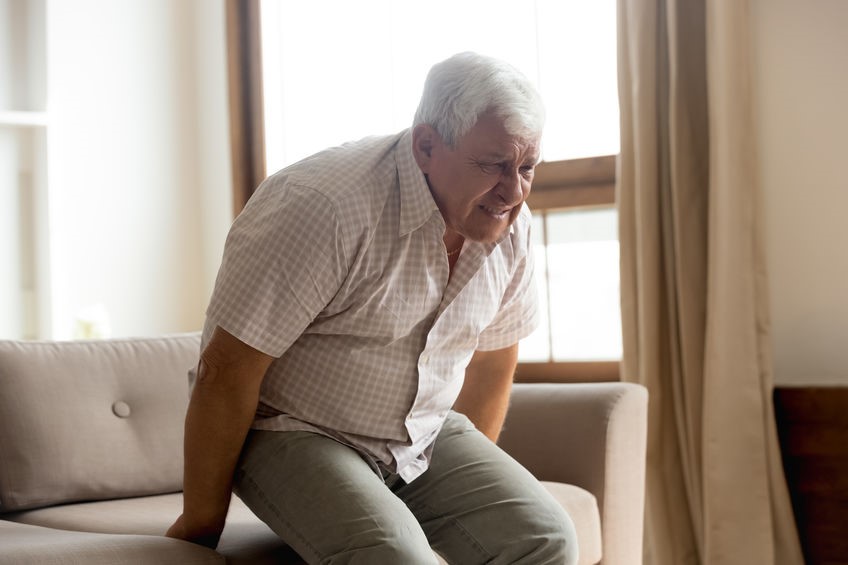How to Care for a Senior with Back Pain
Back pain is one of the most common ailments for seniors. Across a lifetime, our spines endure high stress and strain because they are the core from which all other movement originates, including reaching with our arms and stepping with our legs. Without a healthy and pain-free foundation for movement, activities of daily living and quality of life can be severely impacted.
Estimates of osteoarthritis in the lower part of the back are 40-85%, with “nearly 80% of Americans experiencing at least one episode of LBP (low back pain) in their lifetime.” Osteoarthritis can wear away the cushioned discs between the bones of your spine (vertebrae), causing the bones to contact each other and narrowing the space in between. This narrowing is problematic because nerves that originate from our spinal cord travel from the spinal cord through the vertebrae and to their destinations. If the vertebrae pinch the nerves, considerable pain, tingling, numbness, and weakness will result. These nerves travel as far as the tips of our toes. 
The goal of our caregivers at Visiting Angels Cullman is to maximize comfort and prevent injury for our clients. We also practice what we preach to protect our spines from harm when caregiving for others. Here are three ways we help manage back pain for all of us:
Body Mechanics
Bend Your Knees: Lift with your legs and not your back as much as possible. The strength we can generate with bending our knees to enlist the power of our leg muscles affords much more force than the use of our low back. The amount of strain routed to our low back when bending at the waist will speed the degeneration of the disc and surrounding structures, potentially causing imminent or progressive damage. However, keeping the back vertical while bending at the knees protects the spine from injury. A good rule of thumb: If your eyes are looking straight ahead when lifting, then you are likely using proper body mechanics.
Avoid Twisting: The simultaneous action of lifting and twisting places the back in a vulnerable position. Instead of twisting the back, shuffle the feet to make a turn, so the spine remains in a straight position.
Keep Items Close to the Body: When lifting heavier items, do so while keeping the object as close to the body as possible. For example, if lifting a gallon of milk, it is safest to do so when keeping the gallon close to the body instead of reaching the arms farther away.
Proper Support When Sitting and Lying Down
Proper positioning can minimize back pain. When sitting in a chair, a lumbar or small pillow behind the low back can provide needed additional support. Also, a footstool or chair that allows the feet to rest flat on the floor can reduce the strain on the lower back. Check to be sure hips and knees are both at 90-degree angles when seated.
Back pain can be problematic when lying in bed. If a senior is positioned on their back, a towel roll or pillow under the knees can depressurize the low back. If a senior places themselves on their side, they can hug a pillow with their arms to help align the upper back and position a small pillow between their knees to align their lower back. A full-length body pillow is an all-in-one option for this type of positioning.
Utilize Adaptive Equipment
If a senior needs to retrieve items that are too high or too low, a reaching tool can be helpful to avoid bending or twisting. Sometimes bending at the knees can be difficult for seniors, so using a reaching tool can make retrieving items more accessible and safer. Multiple versions exist, including a type with suction cups at the end and a foldable version. Medicare does not cover reacher tools; however, they are relatively inexpensive to purchase.
Visiting Angels Cullman recognizes the importance of helping our clients minimize back discomfort and prevent further injury. If you or a senior loved one would like to learn more about Visiting Angels Cullman in-home care services, please call 256-297-8947 or contact us online today.
